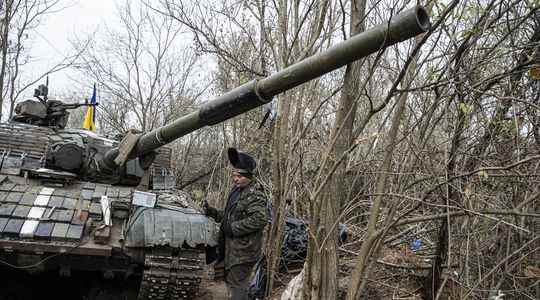Ukrainian forces have indeed begun, Thursday, November 10, the cautious reconquest of the Kherson region in the south of the country, lost last February to the benefit of the Russian army. Moscow announced on Saturday that it had completed the withdrawal of its troops from this territory. A major setback for the forces of Vladimir Putin, a month after claiming the annexation of the Oblast and losing the Kharkiv region in the northeast. The news had been received without triumphalism, and with circumspection, by kyiv, which suspected an ambush. Volodymyr Zelensky reacted on Wednesday with “extreme caution”.
“It is not the enemy who is withdrawing, it is the Ukrainians who are driving out the occupier by paying the price,” he declared on Thursday during his televised address. He thus takes the opposite view of the Russian army, which has claimed to withdraw to occupy better positions. Ukrainian forces had, in recent days, made several important advances and recaptured several localities around Kherson.
The Russian Ministry has announced that it has started the withdrawal of its troops, moving them to the left bank of the Dnieper River. The river thus becomes a natural obstacle that is theoretically easier to defend. Satellite images showed Russians digging lines of trenches on the left bank of the Dnieper in recent days. These positions could allow them to be well placed to target Ukrainian troops entering Kherson. This Friday morning, November 11, the Kremlin came out of its silence concerning the withdrawal of its army: it reaffirmed that the Kherson region remains “a subject of the Russian Federation”.
- In Mykolaiv, five Ukrainians killed by a Russian strike
About 100 kilometers northwest of Kherson, in the large southern city of Mykolaiv, at least five people were killed and several injured overnight from Thursday to Friday in a missile strike on a residential building, according to regional authorities. The balance sheet is provisional. “In a cynical response by the terrorist state to our successes on the front, a strike hit a five-storey building, completely destroyed,” the head of the regional administration said on Telegram.
- The United States announces an additional 400 million for Ukraine
Given Russia’s “relentless and brutal airstrikes on Ukraine’s critical civilian infrastructure, additional air defense capabilities are paramount,” the Pentagon said Friday (November 11th). To do this, the United States has announced that it will provide additional missiles for the defense of kyiv, for a total value of some 400 million dollars.
This new tranche of aid includes four Avenger short-range anti-aircraft systems, an unspecified number of Stinger and Hawk missiles, as well as shells and missiles for Himars precision artillery systems.
Ukrainian President Volodymyr Zelensky thanked Joe Biden. This new aid brings to more than 18.6 billion dollars the military assistance of the United States to Ukraine since the beginning of the Russian offensive, on February 24. On Wednesday, November 9, the American Chief of Staff, Mark Milley, had nevertheless hoped for talks to end the war, a military victory being, according to him, not possible for either Russia or Ukraine.
- Seoul denies supporting Ukraine militarily via the United States
South Korea denied on Friday that it sold artillery shells to the United States for Ukrainian forces. the wall street journal revealed the day before that Washington was close to reaching an agreement to purchase 100,000 155mm artillery shells from Seoul for delivery to kyiv, citing “US officials familiar with the case”.
For its part, Seoul insists that if the current negotiation is finalized, the ammunition will be intended for American forces only. In a statement, the South Korean government clarified that the “South Korean policy of not supplying lethal weapons to Ukraine remains unchanged”. The goal for the country is to preserve its ties with Russia, a key intermediary with the North.
- EU will no longer recognize Russian passports from Ukraine
Holders of Russian passports issued in the Ukrainian regions of Donetsk, Lugansk, Zaporizhia and Kherson, unilaterally annexed by Russia in September, will no longer be recognized in the European Union and will no longer be able to enter the Schengen area. This is also the case of Crimea, annexed in 2014 by Moscow, as well as pro-Russian separatist regions in Georgia, Abkhazia and South Ossetia, recognized as independent only by Russia.
This agreement was concluded on Thursday between the European Parliament and its Member States. Although this measure has already been applied in most Member States, the agreement, which follows a proposal from the European Commission, will still have to be formally adopted by the European Parliament and the Council.
- Estonia wants to tear down Soviet-era statues
The Estonian government on Thursday announced a bill that would aim to destroy Soviet monuments in the country’s public spaces. The government believes that they incite hatred in the context of Russia’s war in Ukraine. Estonia has already destroyed many Soviet monuments since it broke free from the Soviet Union in 1991.
She is not the only one: in Latvia, a neighboring Baltic country, a law of the same type has already been adopted. It provides for the removal of all Soviet plaques and statues in the country before mid-November.
